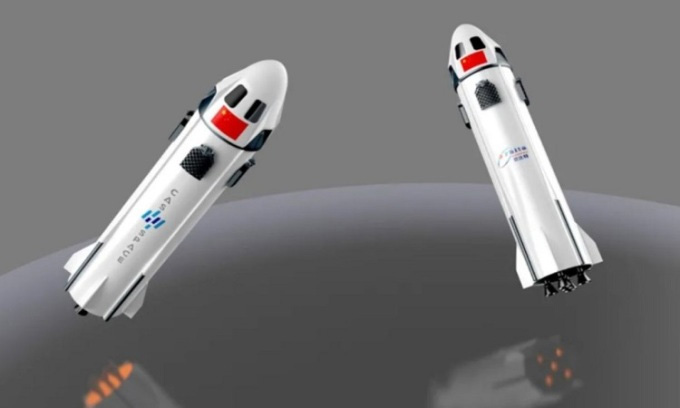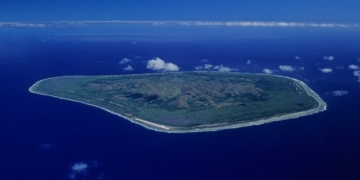CAS Space Plans to Offer Space Tourism Flights in 2024, Similar to Blue Origin.
CAS Space, a technology company under the Chinese Academy of Sciences (CAS), is developing rockets for commercial satellite launches. In August, they announced plans to carry passengers into space. CAS Space is working on a reusable single-stage rocket that can transport up to 7 passengers across the Kármán line (100 km), the boundary between Earth’s atmosphere and space, in just 10 minutes. Illustrations of CAS Space’s project reveal a rocket design that closely resembles Blue Origin’s New Shepard suborbital space tourism rocket and SpaceX’s Crew Dragon spacecraft.

CAS Space’s suborbital rocket for space tourism. (Image: CAS Space)
Despite having a similar shape to the New Shepard rocket, notable differences include 5 kerosene-oxygen engines named Xian Yuan instead of a single BE-3 hydrogen-oxygen engine like Blue Origin’s rocket. According to the designs, the grid fins at the nose of the rocket will assist with landing. Instead of traditional landing gear, an arm attached to the launch tower will “catch” the rocket, similar to SpaceX’s concept for the massive Starship Super Heavy rocket. Meanwhile, the passenger capsule will land with the help of three parachutes.
In 2022, CAS Space plans to conduct its first test flight to confirm whether the drawings accurately depict the company’s rocket design. A complete suborbital test flight is scheduled for 2023. The company aims to provide suborbital tourism services starting in 2024. This is an ambitious plan. Blue Origin’s New Shepard conducted its first unmanned flight in April 2015. The first crewed flight of the vehicle occurred over 6 years and 14 launches later, taking founder Jeff Bezos and three other passengers to suborbital space on July 20, 2021.
Founded in December 2018, CAS Space initially developed solid-fuel rockets before transitioning to more complex liquid-fueled launch vehicles. Earlier this year, CAS Space announced that its ZK-1A solid-fuel rocket was ready for launch in September. The company is currently building a factory in Guangzhou. CAS Space also tested a vertical launch and landing vehicle in April, aiming to create a reusable liquid-fueled rocket.


















































